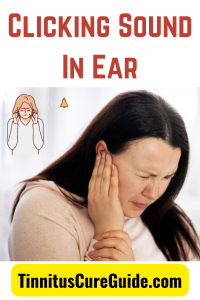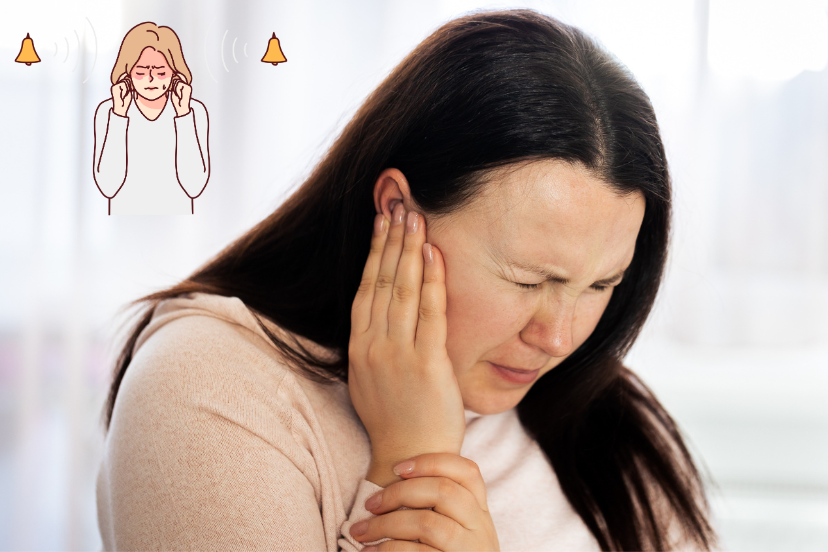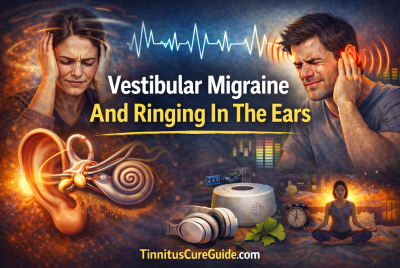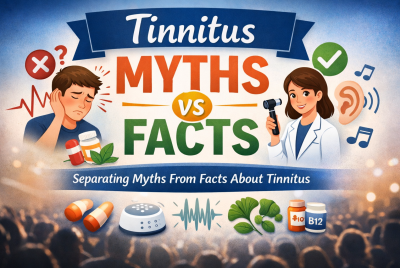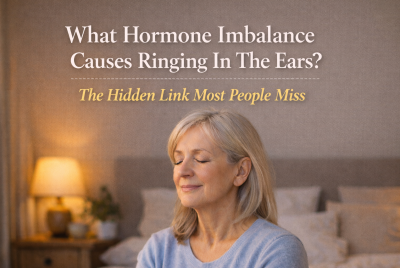Clicking Sound In Ear
Curious about the causes and solutions for that mysterious clicking sound in the ear? Discover expert insights and advice here! As someone passionate about hearing health and eager to provide helpful suggestions, it is essential to promptly address any unusual symptoms related to our ears. One symptom that individuals often experience is a clicking sound in the ear. This article will explore the possible causes of this clicking sound and provide helpful suggestions to alleviate the issue.
Introduction To Clicking Sound In The Ear
Maintaining good hearing health is crucial for our overall well-being. Our ears play a vital role in our daily lives, allowing us to communicate, enjoy music, and be aware of our surroundings. When an unfamiliar clicking sound arises in the ear, it can be concerning and disruptive. Let’s delve into the reasons behind this occurrence and discover potential solutions.
What Causes Clicking Sound In The Ear
Several factors can contribute to the occurrence of a clicking sound in the ear. Understanding these causes is the first step toward finding appropriate remedies. Here are some common causes:
Eustachian Tube Dysfunction
The Eustachian tubes connect the middle ear to the back of the throat, equalizing pressure and maintaining proper functioning. Dysfunction in these tubes can lead to a clicking or popping sensation.
Temporomandibular Joint (TMJ) Disorder
TMJ problems, which connect the jaw to the skull, can result in clicking sounds when chewing or talking. This can also affect the ears.
Middle Ear Infection
Infections in the middle ear can cause fluid buildup, leading to clicking sounds and discomfort.
Earwax Buildup
Accumulated earwax can obstruct the ear canal, causing clicking or popping noises. It is essential to avoid inserting objects into the ear for wax removal.
Muscle Spasms
Spasms in the muscles near the ear, such as the tensor tympani muscle, can create clicking sensations.
Symptoms Of Clicking Sound In The Ear
Apart from the clicking or popping sound itself, individuals experiencing this issue may also encounter additional symptoms. These can include:
- Ear discomfort or pain
- Reduced hearing ability or muffled sounds
You should seek further evaluation and appropriate treatment if you notice any of these symptoms alongside the clicking sound.
Diagnosing The Clicking Sound
When facing a clicking sound in the ear, it is essential to consult a healthcare professional for an accurate diagnosis. The following diagnostic methods may be employed:
- Medical History and Physical Examination: The doctor will review your medical history, discuss your symptoms, and conduct a physical examination of the ears, nose, and throat.
- Audiological Tests: These tests assess your hearing ability and can help determine if any hearing loss or abnormalities are contributing to the clicking sound.
- Imaging Tests: In some cases, imaging tests like CT or MRI scans may be necessary to provide a detailed view of the ear structures and identify any underlying issues.
Clicking Sound In The Ear And Tinnitus
Clicking sound in the ear does not necessarily indicate tinnitus. Tinnitus refers to the perception of sound in the ears or head without any external source. It is often described as ringing, buzzing, or hissing sounds.
Ear Ringing And Clicking Sounds
While tinnitus can manifest in various forms, including clicking sounds for some individuals, it is not the sole cause of clicking sounds in the ear. Clicking sounds can result from several factors, such as Eustachian tube dysfunction, TMJ disorder, middle ear infections, earwax buildup, or muscle spasms.
Differentiate Between Tinnitus And Clicking Sounds
Consulting a healthcare professional to determine the underlying cause and receive an appropriate diagnosis and treatment is essential. They can help differentiate between tinnitus and other possible causes of clicking sounds, ensuring that you receive the necessary care for your specific condition.
How Do I Get Rid Of Clicking In My Ear?
Getting rid of clicking in your ear depends on the underlying cause. An ENT specialist can safely remove the wax if it’s due to earwax buildup. Eustachian tube dysfunction might be alleviated by techniques like yawning, chewing gum, or the Valsalva maneuver to equalize pressure. For TMJ-related clicking, stress reduction, jaw exercises, and lifestyle adjustments could help. Middle ear muscle contractions may require medical evaluation. Protecting your ears from loud noise and maintaining proper ear hygiene can prevent some causes. However, it’s crucial to consult a healthcare professional for an accurate diagnosis and personalized treatment plan to address the clicking sound in your ear effectively. A throat specialist (ENT) is advisable for an accurate diagnosis and appropriate guidance based on your specific symptoms and situation.
Treating Clicking Sound In The Ear
The treatment approach for clicking sounds in the ear depends on the underlying cause. Here are some potential treatments and management strategies:
Eustachian Tube Exercises
These exercises aim to improve Eustachian tube function and restore normal pressure regulation. Techniques like swallowing, yawning, or the Toynbee maneuver can assist in this process.
TMJ Treatments
If TMJ disorder is the cause, treatments may involve jaw exercises, stress management techniques, or even dental interventions.
Antibiotics Or Antifungal Medications
In the case of a middle ear infection, your healthcare provider may prescribe appropriate medications to combat the infection and alleviate the clicking sound.
Earwax Removal
Professional earwax removal, either through irrigation or suction, can help eliminate the clicking sound caused by earwax buildup.
Muscle Relaxants
If muscle spasms are contributing to the clicking sound, muscle relaxants may be prescribed to alleviate the discomfort and restore normal muscle function.
Preventive Measures
Taking preventive measures can help maintain healthy ears and reduce the likelihood of encountering clicking sounds. Consider the following suggestions:
- Maintaining good ear hygiene by avoiding using cotton swabs and seeking professional assistance for removing earwax.
- Protect your ears from loud noises by using earplugs or earmuffs in noisy environments.
- Manage stress levels, as stress can contribute to muscle tension and potential ear-related issues.
- Maintain healthy jaw and dental habits, such as avoiding excessive teeth grinding and maintaining proper dental alignment.
- Regular physical activity can promote overall well-being, including good circulation and ear health.
- Avoid sudden pressure changes. Be cautious when experiencing rapid changes in altitude, such as during air travel or diving. Equalize ear pressure by swallowing, yawning, or using the Valsalva maneuver.
- Limit excessive use of earplugs. While earplugs are helpful for protection, using them too frequently might lead to earwax accumulation if they push earwax deeper into the ear canal.
- Regularly visit an ear, nose, and throat (ENT) specialist for routine checkups to monitor your ear health and address any concerns early on.
Lifestyle Changes For Ear Health
Apart from preventive measures, adopting a healthy lifestyle can contribute to overall ear health. Consider the following lifestyle changes:
- Maintain Ear Hygiene: Clean your ears gently and regularly, but avoid inserting anything deep into the ear canal as it can push wax further and cause problems.
- Stay Hydrated: Drinking enough water can help keep your Eustachian tubes functioning properly, which may reduce the clicking sound.
- Chew Gum or Yawn: Chewing gum or yawning can help regulate pressure in the ears and open the Eustachian tubes, potentially reducing clicking sounds.
- Avoid Ear Irritants: Avoid loud noises, excess earbud use, and other irritants that might worsen the clicking sound.
- Manage Stress: Stress can contribute to muscle tension, including the muscles that affect the Eustachian tubes. Practicing stress-reduction techniques like meditation, deep breathing, or yoga might help.
- Monitor Your Diet: Some people find that certain foods, like those high in salt or caffeine, can affect ear pressure. Keeping a food diary and noticing if there’s a correlation between your diet and the clicking sound could be helpful.
- Protect Your Ears: If you’re exposed to loud noises regularly, consider using ear protection like earmuffs or earplugs.
- Jaw Exercises: If the clicking is related to TMJ issues, gentle jaw exercises or massage might help. However, it’s essential to consult a medical professional before exercising.
- Proper Sleep Position: Sleeping with your head elevated slightly might help with Eustachian tube drainage.
- Stay Active: Regular physical activity can help blood circulation and general well-being, which might indirectly impact ear health.
- Stay Updated on Medical Checkups: Regular checkups with an ear, nose, and throat (ENT) specialist can help monitor any changes in your ear health and provide appropriate treatment.
Seeking Professional Help
While self-care measures can be helpful, seeking professional help when experiencing persistent clicking sounds in the ear is crucial. Consulting a healthcare professional, such as an otolaryngologist or audiologist, can provide a proper diagnosis, personalized guidance, and appropriate treatment options. If the clicking sound is accompanied by severe pain, sudden hearing loss, or other concerning symptoms, seek immediate medical attention.
FAQs About Clicking Sound In Ear
Can stress and anxiety cause a clicking sound in the ear?
Stress and anxiety can contribute to muscle tension, including muscles near the ear. This tension may result in clicking sounds. Managing stress levels and adopting relaxation techniques can help reduce such symptoms.
Is it normal to experience occasional clicking sounds in the ear?
Occasional clicking sounds may not be a cause for concern. However, if the clicking becomes persistent, is accompanied by pain or hearing loss, or affects your daily life, it is advisable to consult a healthcare professional for evaluation.
Can allergies contribute to clicking sounds in the ear?
Allergies can lead to Eustachian tube dysfunction, which may cause clicking sounds. Managing allergies through appropriate medications and avoiding allergens can help alleviate the symptoms.
Can I clean my ears with cotton swabs to prevent clicking sounds?
It is not recommended to clean your ears with cotton swabs, as they can push earwax deeper into the ear canal, leading to blockages and potential clicking sounds. Seek professional assistance for safe earwax removal.
Can chiropractic adjustments help with clicking sounds in the ear?
Chiropractic adjustments may provide relief for some individuals with clicking sounds related to TMJ disorders. Consult with a healthcare professional experienced in this area to determine if chiropractic treatment is suitable for you.
Clicking Sound In Ear – Conclusion
Maintaining good ear health is essential for our overall well-being. When faced with a clicking sound in the ear, it is vital to understand the underlying causes and seek appropriate solutions. Identifying the cause and working with healthcare professionals can alleviate the discomfort and preserve our hearing abilities. Remember to prioritize your ear health and take proactive measures to prevent future issues. Remember, the information provided here is for informational purposes only and should not replace professional medical advice. Always consult a healthcare professional for an accurate diagnosis and personalized guidance.
Disclaimer
This article is for informational purposes only and does not substitute professional medical advice. Always consult a licensed healthcare provider before beginning new treatments, supplements, or exercise programs for tinnitus or related conditions.

